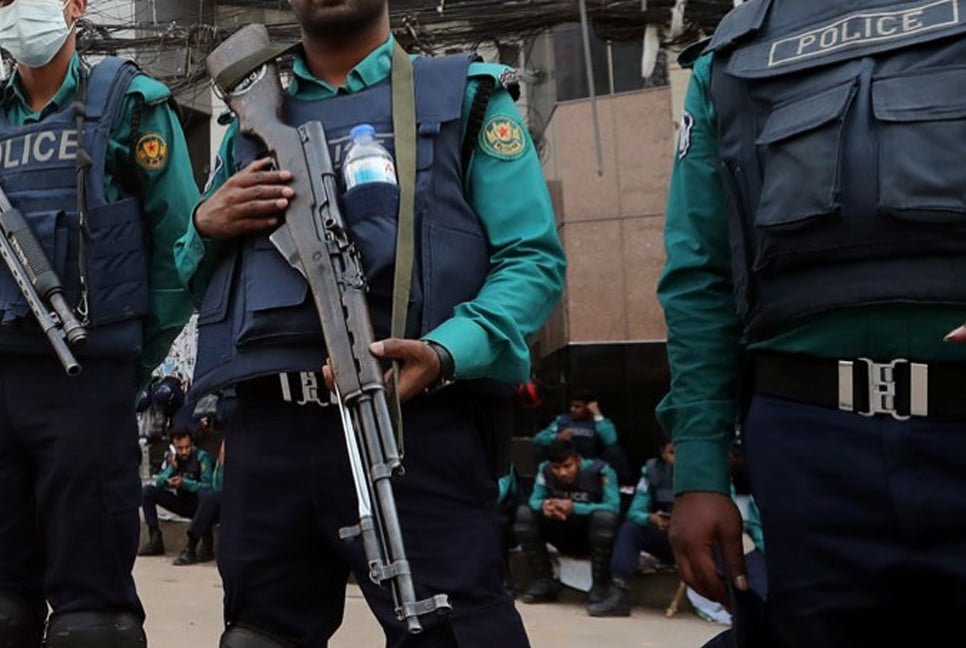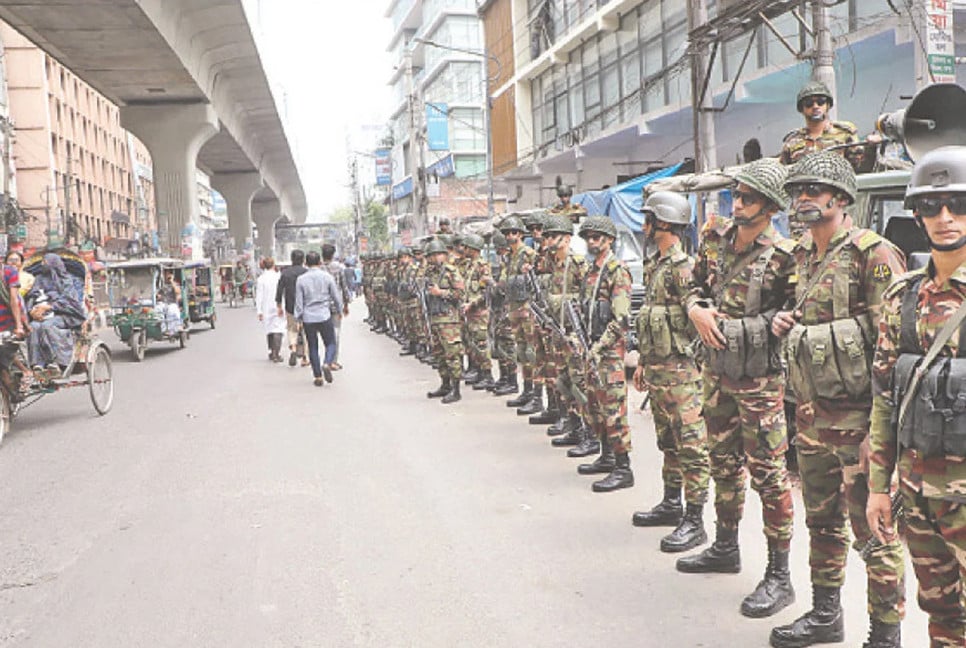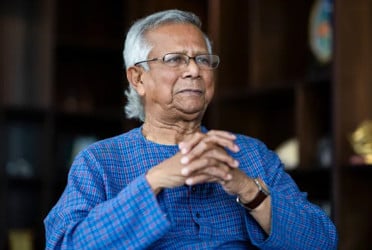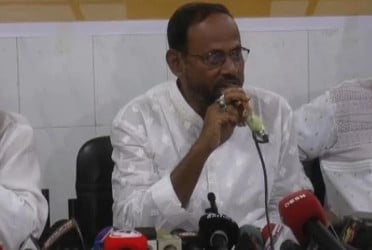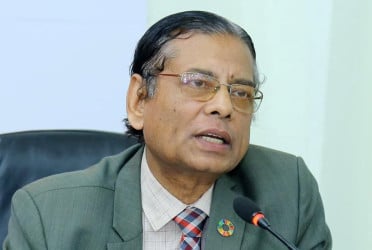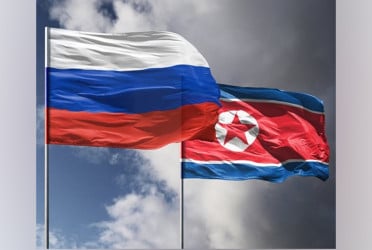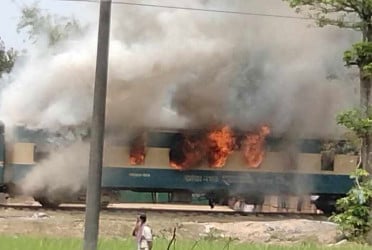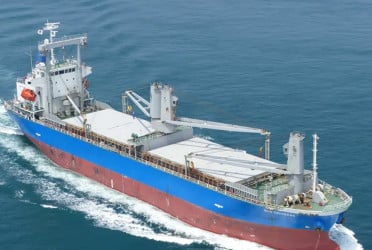The country’s economy is now in complete disarray. In the past 35 years, the country has never faced a crisis of this magnitude. Dr. Salehuddin Ahmed, the government's honest and honorable economic adviser, openly acknowledged that even Sri Lanka’s economic situation, which led to its bankruptcy three years ago was not as severe as it now.
Everyone knows that Sri Lanka's economy collapsed during the COVID-19 pandemic in 2021. Its foreign exchange reserves dropped to a dangerously low level. At that point, they were forced to request a loan from Bangladesh. Bangladesh answered the call from the Colombo government and lent Sri Lanka 200 million dollars, which is currently equivalent to about 2,500 crore Bangladeshi Taka.
This marked Bangladesh's debut as a donor country. Sri Lanka repaid the loan within two years. However, Bangladesh's economy is continuously heading towards the brink of a cliff.
A leading figure of the Economics Association, known for his expertise as an economist and researcher, recently shared his frustration while emphasizing the dire state of the country's economy. He said the country's business sector is on the verge of collapse. Industrial investment has been almost completely halted for a long time. The situation of the businesspeople is so dire that it's better to leave them alone and let them live in tears.
The people of the country sought freedom from the nearly 16 years of misrule by the Awami League. The business community hoped that with the fall of the autocratic regime, a favorable environment for trade and commerce would emerge. However, the reality across the country is the opposite.
Previously, there was a government notorious for vote rigging. The current government is not elected; it has come to power with the support of the nation's 180 million people. Although there were expectations of creating job opportunities nationwide following the July mass uprising, moreover, detrimental actions are being taken to cripple trade and commerce.
Extortion and bribery were open secrets across the country, during the rule of the fallen autocrat. Now, extortion and bribery are even more rampant. The state of business and trade has reached a point that it’s hard to even imagine. In just five months, the revenue deficit has reached 53,000 crore Taka. The government runs on revenue income, which is used to pay salaries to government employees and officials, as well as to fund development projects.
If business and trade were flourishing in the country, the issue of a sky-high revenue deficit would not have arisen. It would not have become a curse for the nation’s economy. The situation is so critical that, rather than prioritizing development projects, the government will now need to take out loans amounting to thousands of crore Taka just to stay afloat.
Due to the government borrowing heavily from banks, it has become challenging for private entrepreneurs and industrialists to obtain loans. Industrialists who once regarded loan defaults with disdain are now finding themselves trapped in the same situation. Many, overwhelmed by enormous debts, are trying to survive by relinquishing their factories through negotiated settlements.
A secure environment is essential for running factories, yet it is currently lacking. Gas and electricity, which are essential for operating factories, are in severe shortage. While the government is making efforts to provide the necessary assistance, the pace of progress is very slow.
During the rule of the fallen fascist government; factories, agriculture, and livestock farming were deprived of essential facilities. The main goal of the ministers and leaders of the authoritarian government was to bring in foreign loans to execute mega projects. Through these projects, they embezzled thousands of crore taka via massive corruption, filling their pockets.
The interim government's Ministry of Industry has adopted a "listening without action" approach, instead of solving the problems in the industrial sector. Recently, a diligent and experienced industrialist closed all four of his factories at once, leaving 5,000 workers and employees in his textile industry unemployed overnight. Furthermore, nearly 100 export-oriented garment factories have shut down in the last few months.
The closure of the four established factories is primarily due to the shutdown of most of their buyer garment factories, a lack of necessary bank loans, and a shortage of raw materials. Furthermore, several other factory owners are encountering similar challenges, compelling them to stop production. Many factories are also struggling with insufficient gas supply, electricity, and other logistical support.
The main responsibility for resolving these issues lies with the Ministry of Industry. However, the officials in charge have not deemed it necessary to meet with industrialists to address the ongoing problems. Despite being a prominent industrialist himself, the advisor in charge of the Ministry of Commerce has been unable to take effective measures to improve the struggling state of the country's industries due to the prevailing circumstances.
The government's success is being questioned due to the disruptions in trade and commerce. As a result, the unemployment rate in the country is on the rise. A recent report by the Bangladesh Bureau of Statistics has revealed that the number of unemployed individuals has reached 2.66 million.
According to experienced economists, the number of fully unemployed individuals in the country is around one crore, or close to it. Additionally, it is feared that the number of disguised unemployed people (those with insufficient earnings from alternative employment) will also be nearly one crore.
The fascist government of Sheikh Hasina, which was ousted from the country, devoted fifteen and a half years bringing huge loans for mega projects from countries like China, Russia, Japan, and others in the name of infrastructure development, and was busy looting billions of crores of Taka through mega corruption.
Foreign workers have been employed in numerous mega projects, but only a small number of unemployed Bangladeshis have been able to secure jobs. Additionally, no initiatives have been taken to attract both local and foreign investors for industries or agricultural and livestock farms that could generate substantial employment. To gain cheap publicity, several export processing zones and special industrial zones were set up, and infrastructure projects were widely promoted. However, only a fraction of the targets has been achieved. The main reason for this is bureaucratic complexity.The expected success has not materialized due to dependence on bureaucrats. There has been no progress in allocating enough foreign currency for the supply of gas, electricity, and the import of necessary raw materials and capital machinery for industries.
In order to enhance the state's efforts for providing immediate employment to the unemployed, a 21-member high-level commission could be established, comprising at least 10 economists and industrial investment specialists, along with 11 industrialists. The objective of this commission would be to improve the country’s industrial investment climate and tap into the sector's potential.
The commission members would visit the industrial areas across the country, review the ground realities, and present a report with recommendations for solutions. Without waiting for that report, three or four advisors from the ministries related to trade and business must engage directly with the owners or groups of owners of the struggling industries to take immediate steps to address the existing problems.
If the advisers from the ministries of industry, commerce, agriculture and livestock, and finance do not pay direct attention, industrialists will fall into despair. A group of industrial entrepreneurs, led by Anwarul Alam Chowdhury, has already briefed the Governor of Bangladesh Bank, Dr. Ahsan H. Mansur, about the problems faced by industries. They have urged the government to take the necessary steps to save the industries or offer a "safe exit" to free them from their financial liabilities. These issues are well-known to the country's economists, industrial experts, and government leaders.
The issues within the industrial sector include the gradual increase in bank loan interest rates, the government's avoidance of responsibility in managing logistics support systems such as gas, electricity, and water, widespread extortion, the failure to change the 'bribery business' within law enforcement and bureaucrats after the fall of the authoritarian government, severe failure in managing foreign currency for the import of necessary equipment and raw materials for industries, and the inability to implement a 'one-stop service' for new domestic and foreign investors.
Businesspeople need to move away from considering things from a political standpoint. Their primary identity is that they are the leaders of the country's development. They pave the way for employment opportunities. Under authoritarian rule, they have directly suffered from deprivation. If the government adopts business-friendly policies and encourages entrepreneurs, the country will progress, and the people will find relief.
Author: Former Information and Research Editor of BNP
(Translated by Afia Nanjiba Ibnat)
Bd-pratidin English




